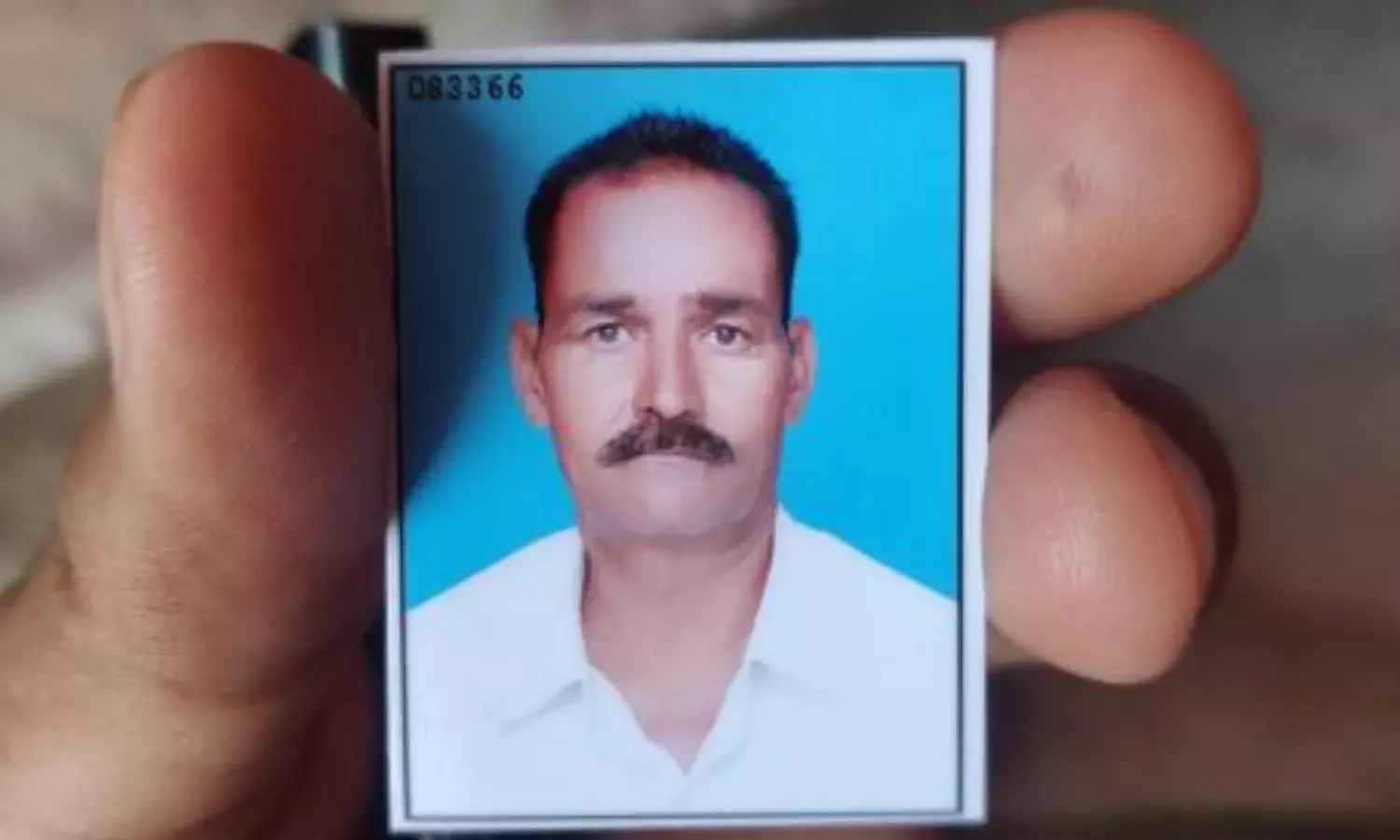Your Task is Being Processed': Another Sanitation Worker Dies, His Family Wait in Fear
The death in the family has left everyone scared

GURGAON: It was just another day for Balraj Sauda, father of four, when he received a call from a nearby dairy farmer to clean a manhole.
When he didn’t come up after the third dip, his colleagues got worried and hoisted him out. He was still breathing and was rushed to the local hospital, where he died during treatment on August 27.
The family of five now face extreme difficulty trying to make ends meet. They live in a two-bedroom rented house with a washroom and kitchen which ends as soon as you enter. Their ageing mother is a domestic worker and her two daughters, Rekha (21) and Jyoti (28) are unemployed.
A lot of responsibility now rests on their brothers’ shoulders. Neeraj, 27, is a painter and Vishwas, 25, works in plaster of Paris. “When dad was alive we felt safe, secure. There was at least some support. But now we don’t know what to do” says Neeraj.
According to the Safai Karamchari Andolan (Sanitation Workers’ Movement), an NGO dedicated to eradicating manual scavenging in India, at least 300 lives have been lost cleaning sewers since 2017.
In Sauda’s case the police have registered an FIR under Section 304A (death by negligence) and the 2013 Prohibition of Employment as Manual Scavengers and their Rehabilitation Act.
A Supreme Court judgment from the same year mandates the central government to pay ?10 lakhs as compensation to the family of every manual scavenger who dies in the course of their work, and ?50,000 for their cremation rites.
It has been over a month since Sauda died, and his family say they haven’t received a single rupee from the government. With the SKA’s help they approached the magistrate’s office three days after his death, where a senior official assured them they would be recompensed by September 10 through a direct bank transfer.
The date is long past and all Neeraj says he has heard from them is “Aapka kaam ho raha hai” - “Your task is being processed.”
In a recent phone call the senior official told Neeraj that no one was free to process the paperwork, because they were all on election duty in Haryana.
The law mandates a list of equipment to be provided to each sanitation worker, but the ground reality is starkly different. Neeraj tells The Citizen that the only equipment his dad would get was a metal rod and metal scraper. No boots, gloves or any safety masks were provided.
“Most of this work is outsourced by the government, so private contractors are the ones who manage everything” Neeraj says.
One of the main reasons people are willing to work in such conditions is because of the quick money you can earn. Balraj Sauda would earn ?300-400 each time he entered a manhole.
Five people died from manual scavenging just 30 kilometres from Delhi on August 23, and on August 27 Sauda lost his life.
The death in the family has scared everyone. Their mother Maiambati expresses worry about her son Vishwas’s work, which involves climbing to dangerous heights to plaster walls.
“All my children are adults and none of them are married. What will I say to people in society?” she adds.
Sauda used to earn a significant amount, but now the family barely earn ?15,000-16,000 per month.
“My father was planning to buy a small house in the locality, but now that seems impossible” says Vishwas. He says their lack of education is one of the main reasons they cannot get a permanent job.
Another reason could be the caste system. According to the SKA over 95% of sanitation workers in India are women, and over 99% are from the lowest Dalit castes.
Neeraj denies having faced any discrimination due to his caste in the city, but says it was quite prevalent back in his village near Meerut. “The main job of people of our caste is cleaning.”
The prime minister recently declared India free of open defecation. His government’s Swachh Bharat Abhiyan (Pure India Mission) has constructed lakhs of toilets across the country, but most are dry latrines which must now be cleaned by hand, perpetuating this lethal occupation.
“We were also told one of us would get a government job,” Neeraj says. They wait.
This article is the part of TheCitizen's two day journalism workshop 'Behind The Byline'. For more information, email editor@thecitizen.in


